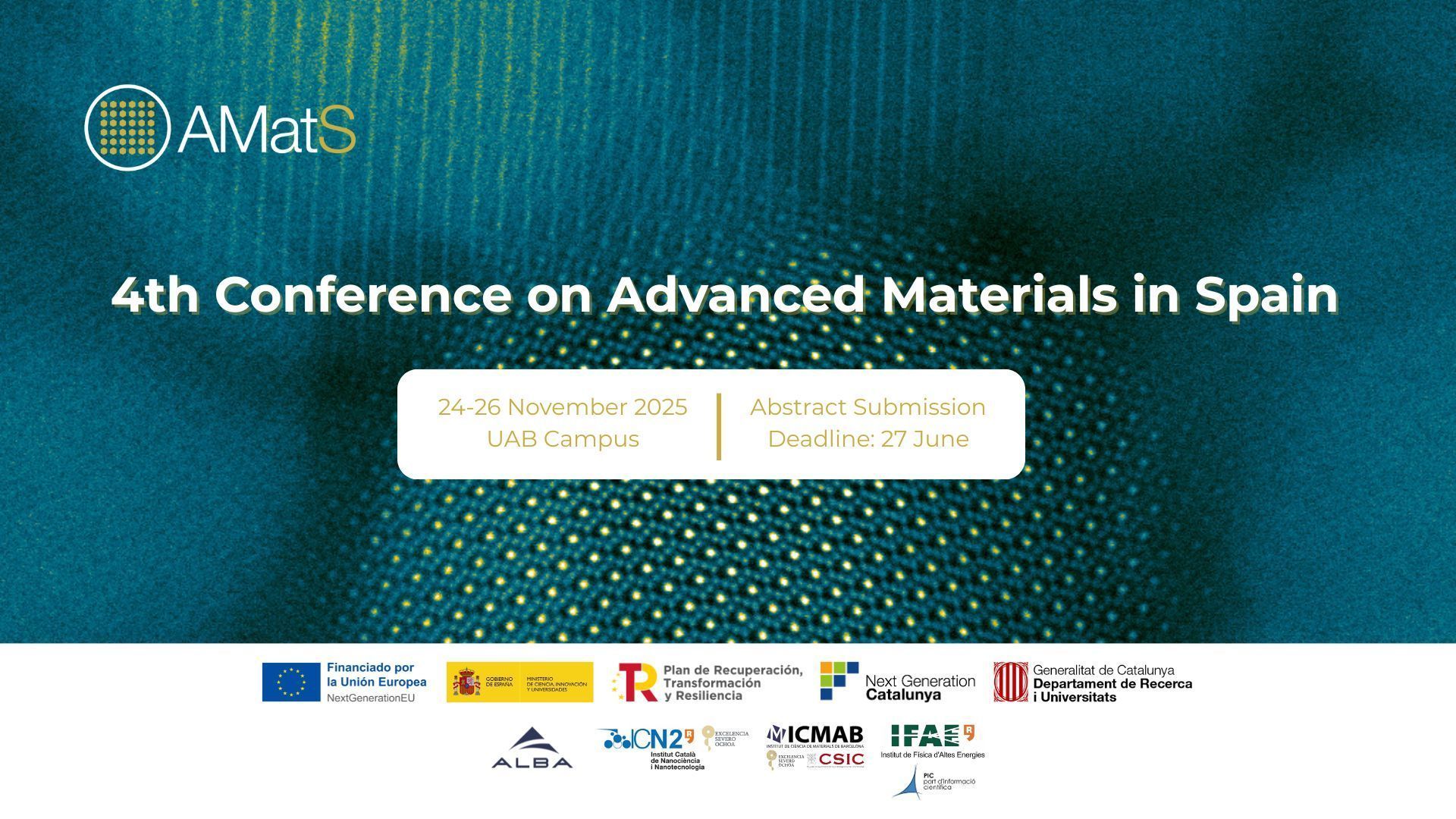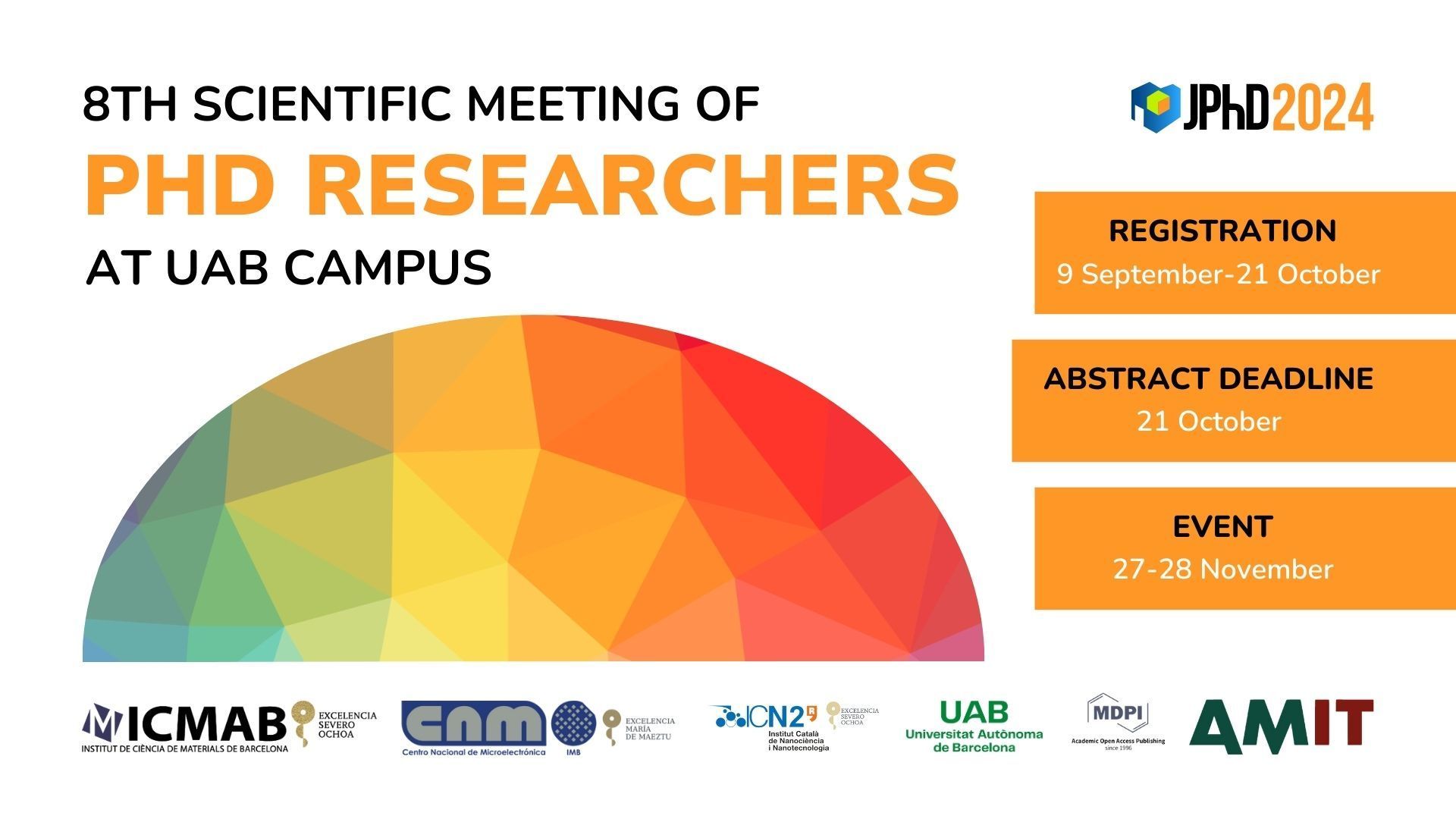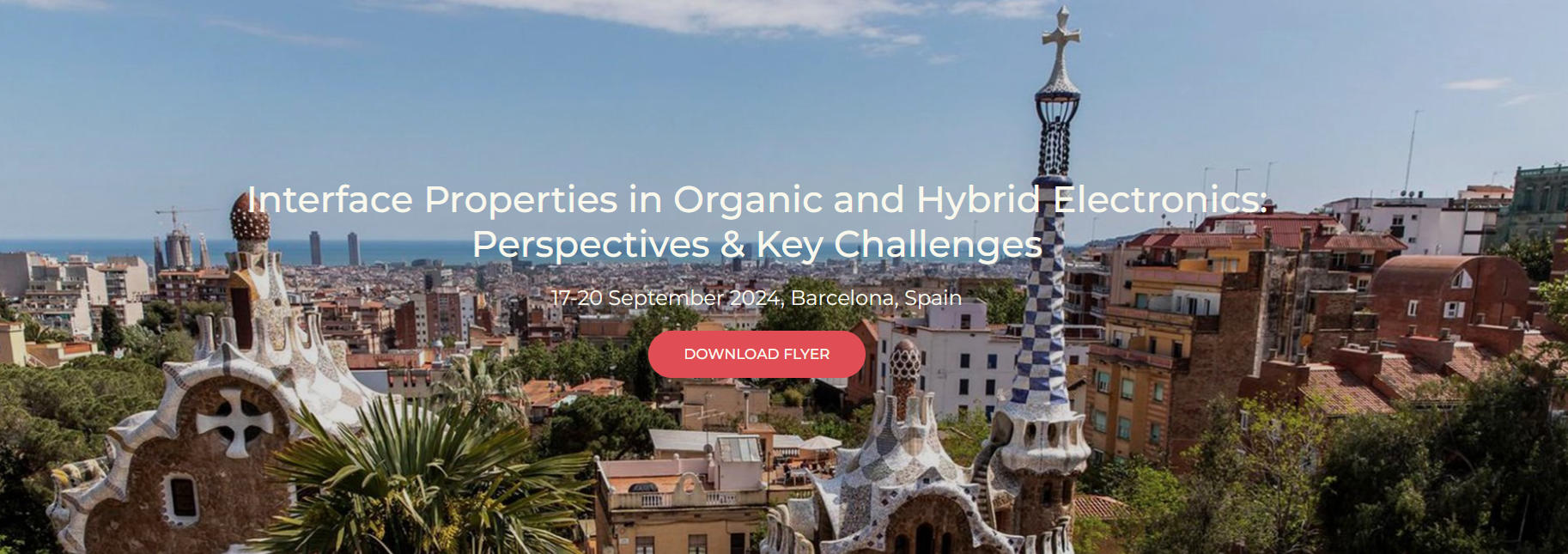Advanced Material Spain (AMatS) 2025- Barcelona (Spain)
The 4th Conference on Advanced Materials in Spain (AMatS 2025) took place from 24th to 26th November 2025 at the Universitat Autònoma de Barcelona (UAB), bringing together researchers, professionals, and institutions working at the forefront of advanced materials science.
AMatS 2025 began with the InCAEM Opening Ceremony at the ALBA Synchrotron, including talks and a guided tour of the new InCAEM facilities—Spain’s latest infrastructure for in situ correlative studies of energy materials.
The fourth edition aimed to be a discussion forum on the then-current status and perspectives of the different types of advanced materials. On that occasion, the organizers provided a high-level platform where recognized experts and participants shared new developments, research, and testing technologies that contributed to and inspired further advancements in advanced materials.
The program included:
- 3 plenary lectures, 3 invited talks, and 7 presentations by Advanced Materials Plan coordinators
- ~50 contributed talks, flash communications, and poster sessions
- A Gala Dinner, networking events, and a poster welcome session
This conference was a unique opportunity to explore the latest scientific trends, engage with leading experts, and connect with major institutions such as ICMAB-CSIC, ICN2, ALBA, and PIC-IFAE.
Conference chairs:
Lucía Aballe (ALBA-CELLS), Jordi Arbiol (ICREA, ICN2) and Caterina Biscari (ALBA-CELLS)
Local Organizing / Scientific Committee:
Aitor Mugarza (ICREA, ICN2), Ester Barrena (ICMAB-CSIC), Gonzalo Merino (PIC, IFAE), Ana Belén Martínez (ALBA-CELLS), Ana de la Osa (ICN2), Anna May (ICMAB-CSIC), Sebastián Grinschpun (IFAE), Alba Garzón (ICN2), Belén Ballesteros (ICN2), Daniel Martín Jiménez (ICMAB-CSIC), Emigdio Chavez (ICN2), Marc G. Cuxart (ICN2), Martin Eriksen (PIC, IFAE), Albert Moreno (ICMAB-CSIC) and Oriol Roig (ICMAB-CSIC)



